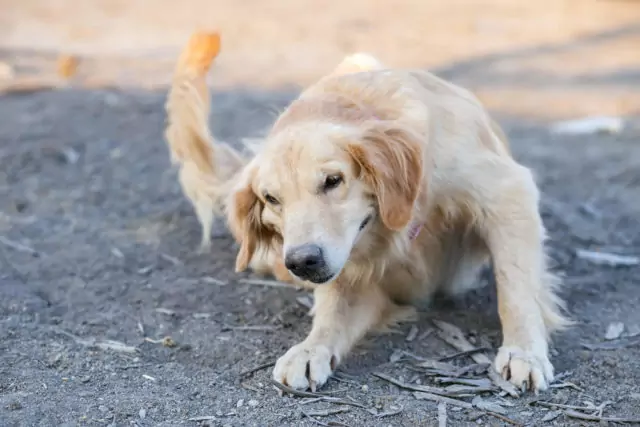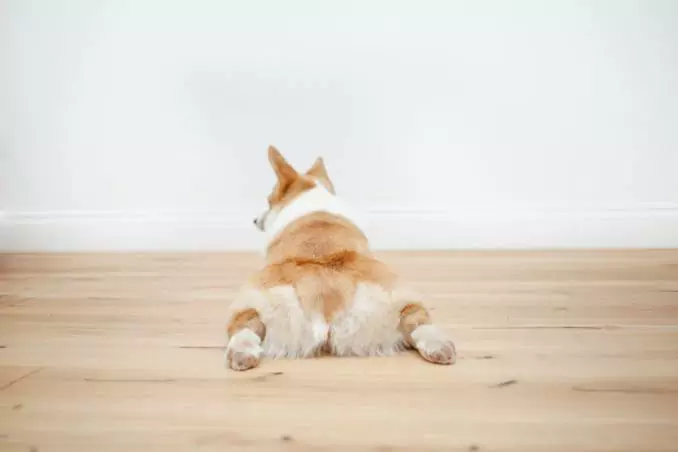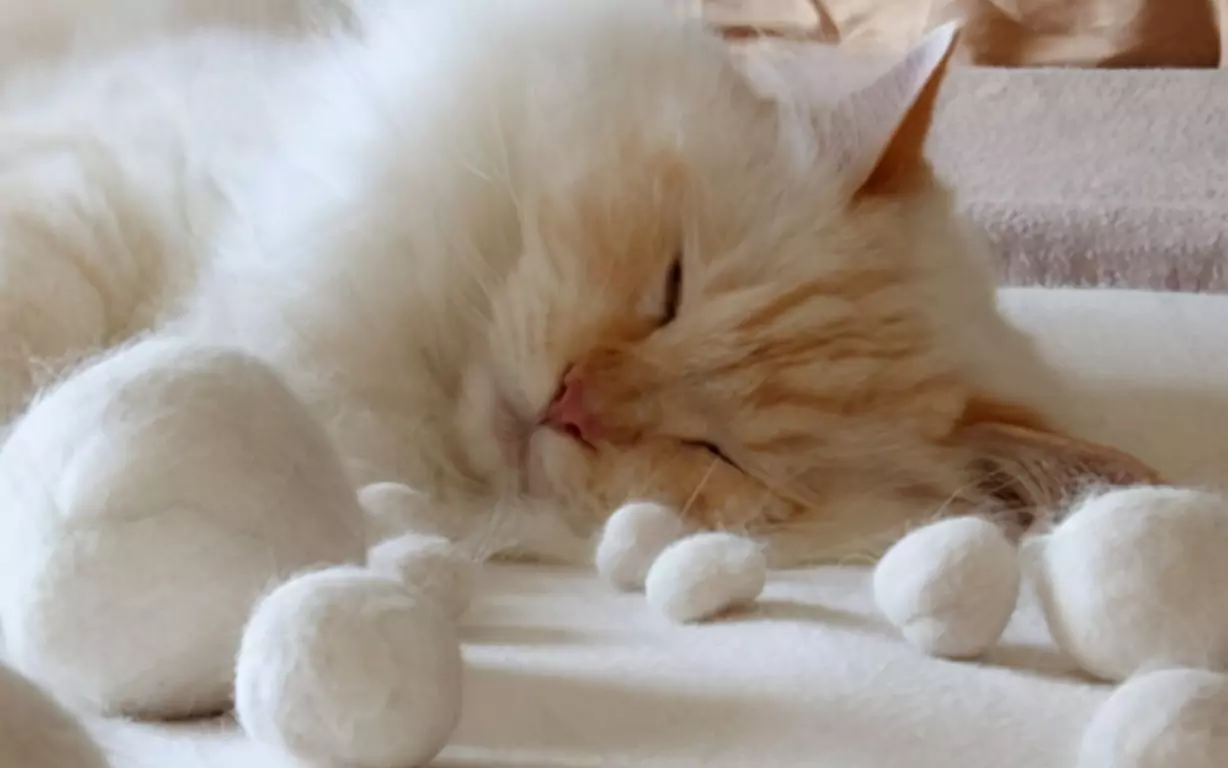Can cats drink milk? How to choose cat milk powder
2022-07-01
Can cats drink milk
Cats are not allowed to drink milk. Because milk is so rich in nutrients, cats cannot drink milk because it contains lactose, and cats are lactose intolerant, which means that they do not digest lactose well, which causes severe diarrhea. Long-term diarrhea in cats can cause dehydration, as well as electrolyte balance disorders, especially in small dairy cats, which are particularly prone to long-term diarrhea and death. In addition to milk, products like yogurt and lactobacillus are not recommended for cats to drink.
The reasons for this are as follows.
1. most cats are lactose intolerant.
First let's see, what is lactose intolerance?
Lactose is a disaccharide whose molecule is composed of glucose and galactose. It has a slightly sweet taste and cannot be absorbed directly in the body, but needs to be broken down under the action of lactase in order to be absorbed. Therefore, cats lacking lactase, after ingesting lactose, undigested lactose enters the large intestine directly, stimulating faster peristalsis of the large intestine, causing symptoms such as abdominal chirping and diarrhea called lactose intolerance.
Many kittens are prone to dysentery (diarrhea) after drinking milk or dairy products because the cat's gut lacks lactose digestive enzymes and lactose enzymes. The lactose in milk cannot be fermented in the intestine and cannot be digested by the body, and this indigestible lactose will cause bacteria to multiply, which will instead absorb water and cause dysentery, such a situation is very similar to lactose intolerance in humans. In adult cats, the lactase enzyme in the body is low and decreases with age, so the lactose in milk cannot be fully digested, resulting in lactose intolerance. Lactose is also fermented by microorganisms in the posterior intestinal canal, producing gas and causing flatulence and even osmotic diarrhea. The long fat chain in milk is not easily absorbed by cats and can lead to volumetric diarrhea, which is fatal for cats, especially kittens.
Of course, not all dogs and cats are intolerant to milk, and a small percentage can still digest milk. Compared to purebred cats, mixed-breed cats are generally more receptive to milk.
2. The nutritional composition of carnivorous cat milk and herbivorous cow milk is very different
The concept of supplementing nutrition for the family cat is correct, but feeding milk is debatable. After all, for cats, when they are young, they drink the mother's milk, not the cow's milk.
Simply put, the ratio of milk fat to lactose in cat milk and milk is different. The composition of cat milk is characterized by high fat, high protein and low lactose; while milk is low fat, low protein and high lactose; for cats, the protein content of milk in general is not enough, and additional additions such as taurine, fish, meat, etc. are needed for feeding, and most milk contains only half of the protein of the special dry feed for cats, if If cats are fed with milk and dairy products for a long time after weaning, it is easy to cause protein deficiency, energy deficiency and anorexia.
3. Some cats are allergic to the protein in milk
Distinct from the gastrointestinal symptoms of lactose intolerance, cats, especially kittens, may also be allergic to the proteins in milk.
Milk contains approximately 3 grams of protein per 100 ml, including both casein and whey proteins. Both of these proteins have the potential to cause allergies. When the cat's immune system mistakes the normally ingested milk protein for an invading enemy, it triggers a series of immune reactions to fight the "enemy", which may result in vomiting, diarrhea, skin redness, asthma and other symptoms. When the immune response is too strong, untimely rescue may even lead to death.
Cats that do not have diarrhea from drinking milk should also be given fresh water to drink after drinking milk. In addition, if milk is taken out of the refrigerator, it can sometimes cause dysentery in cats under the stimulation of the cold, so the food given to cats should not be too cold, and the food can be heated slightly first when the weather is cold.
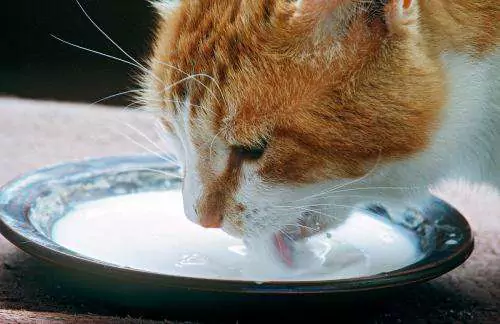
What to choose for your cat's formula
When possible, it is best to choose to welcome a new family member after the kitten has been weaned, but for various reasons, such as not all kittens nursed by their mothers can drink sufficient breast milk, or the pooper scooper adopts a kitten that has not yet been weaned, etc., the kitten is not yet able to eat dry and hard food due to a weak and immature gut, and will not even initiate a diet, so the preferred food for manual feeding is better than Cat milk powder.
On the market, the most common formulas for cats are cow's milk, goat's milk and softened milk.
Softened milk is lactose-free milk or goat milk, which is better for lactose intolerant kittens. If kittens also have fat intolerance, low-fat softened milk should be used. The fiber content of some of the softened milks may not be suitable for all kittens, and for kittens with a sensitive constitution, slight differences in composition may cause gastrointestinal discomfort. As mentioned before, the protein content of cow's milk and goat's milk is very low, which is not nutritious enough compared to cat's milk, and may cause stunting, death by consumption or stunting and weakness even if the kitten survives, so when artificially feeding cats, additional supplementation of lipids, protein and vitamins is needed.
If you find that your cat has diarrhea after feeding milk to your cat, you should stop feeding milk immediately. If it is a kitten, it is best to consult the vet. For adult cats, you can first fast the cat and resume the diet after 12 hours until the cat's stool hardness is normal and then try other dairy products.
Nowadays, there are special milk powder for cats and nutritional milk products for cats, in which enzymes are added to remove allergens and do not cause diarrhea, and dairy products with lower lactose content are another option.
Milk is only one of the choices of nutritional supplements for cats, and owners can use other nutritional supplements instead.
Cats cannot drink the owner's drinks
In addition to milk, the owner's mineral water and carbonated drinks are not allowed to be ingested by cats, cats do not have the oral blessing of sugar, even if they eat it, they will not feel much, but will cause obesity, tooth decay, diabetes, etc., while the minerals contained in mineral water will easily lead to urinary tract stones in cats.
The drinking water for cats in daily life, you can go to the pet store to buy a special pet drinking fountain, it should be noted that the drinking water for cats needs to be fresh enough, it is best to do a change a day.
Healthy cats, good cat food is the most important
Cat food is the food that cats eat every day. Compared to supplementing cat nutrition through milk, cat food is the key.
First of all, choose a cat food that is more nutritious and contains fiber and vitamins. In addition to commercial food, owners who have time can also steam beef, fish and other meat in a pressure cooker to make cat meals for cats, and for the cardiovascular health of cats, owners can also make homemade fruit and vegetable food to supplement their cats with vitamins.
Can cats drink honey water?
Cats can drink honey water. Honey is rich in vitamins and other nutrients that are better for your cat's cardiovascular and lung health. Honey also has a laxative effect, so if your cat is constipated, owners can give their cats some honey water, thus helping them to defecate. Honey is also good for the skin and coat, but you should not let your cat eat too much of it.
What fruits and vegetables can cats eat
Cats can eat cauliflower, cabbage, carrots and bok choy, etc. Fruits can be fed to common fruits such as pears, apples and bananas. However, grapes should not be fed, as they can easily induce poisoning. At the same time, do not feed cats to eat fruit kernels, so as not to cause gastrointestinal obstruction or poisoning. In addition, some foods eaten by humans may be potentially toxic to cats, but the general public is not aware of this. Therefore, for the health of cats, it is recommended that owners adopt the principle of single feeding and do not feed their cats various foods eaten by humans to avoid unnecessary consequences.
Was this article helpful to you?
Other links in this article
português (Brasil):
Os gatos podem beber leite? Como escolher o leite em pó para gatos
中文简体:
猫能喝牛奶吗?猫咪奶粉该怎么选
中文繁体:
貓能喝牛奶嗎?貓咪奶粉該怎么選
Comments
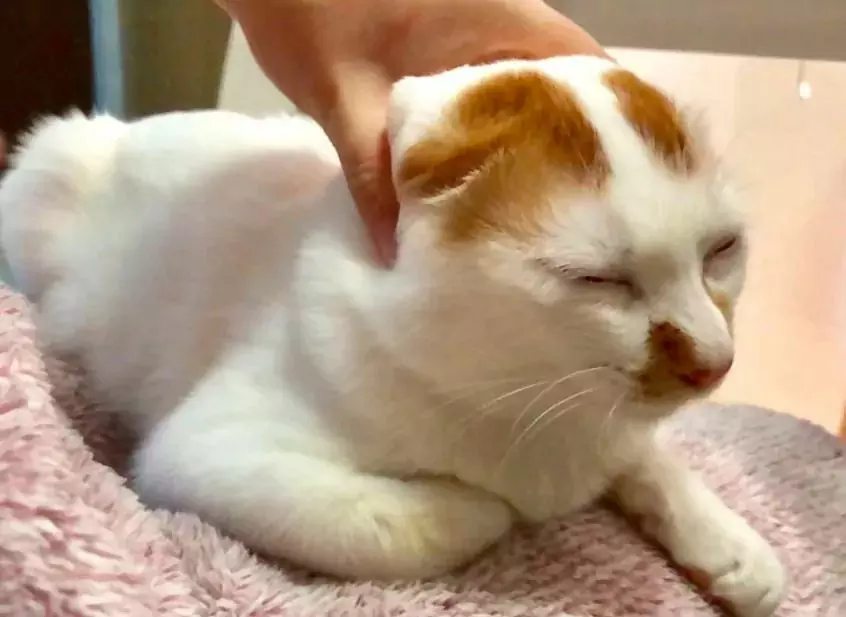
Why do cats sleep so much? How long do cats sleep in a day? Cats' sleep cycles, sleep habits, and dreaming
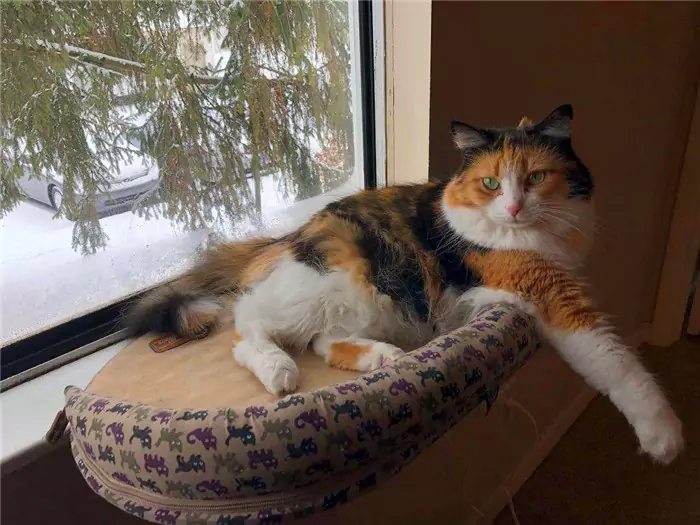
Why is my cat losing its hair?
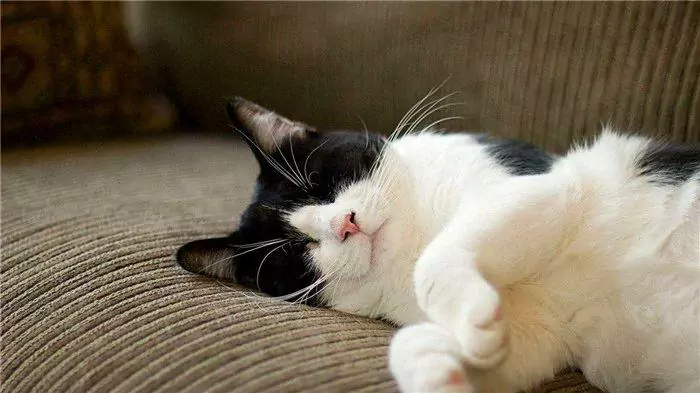
Why do cats purr?
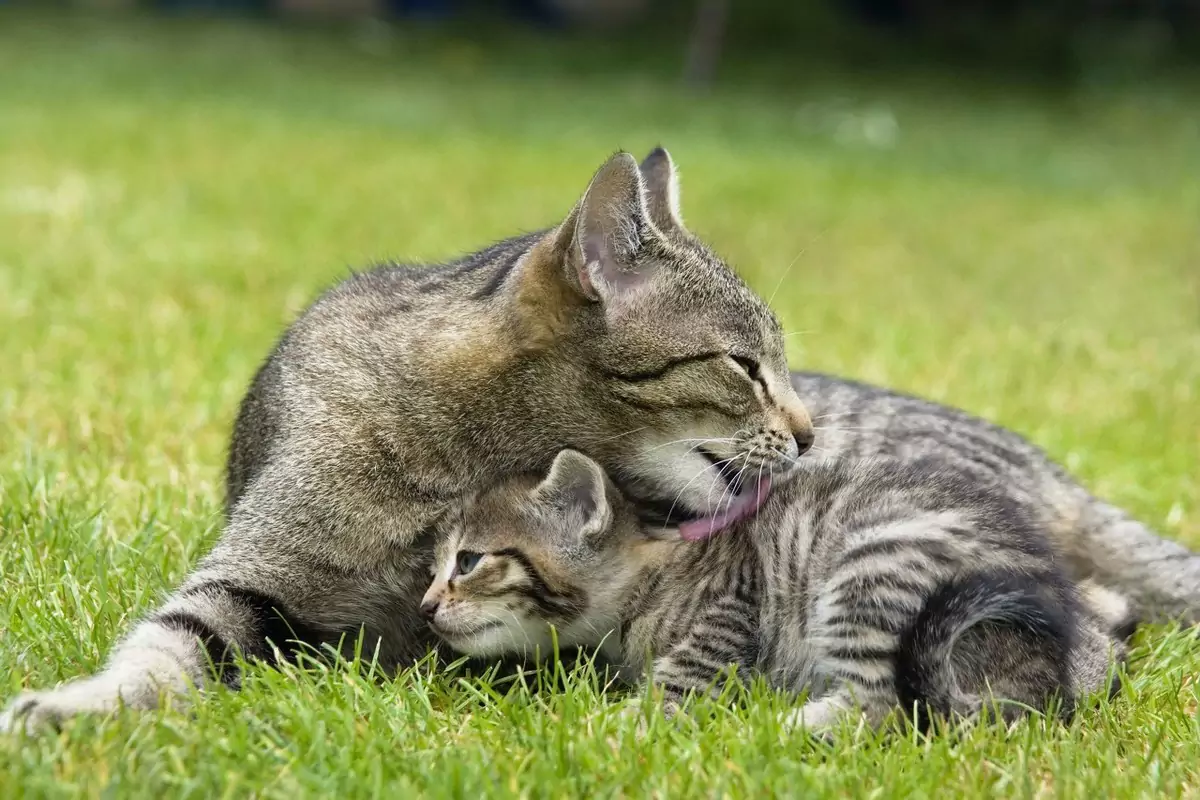
Why do cats groom each other?

How long do cats live indoors? Do cats get lonely?
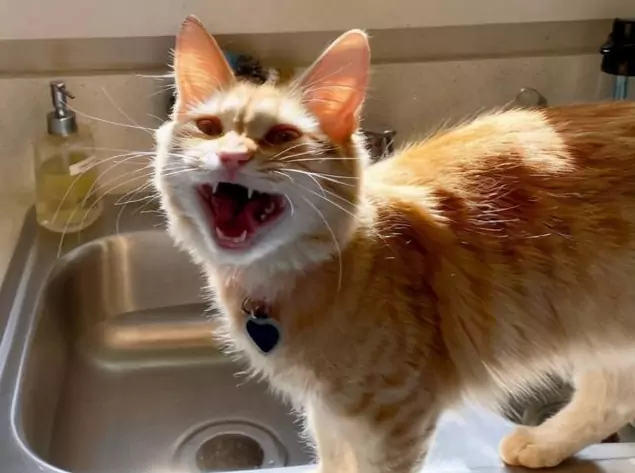
Why do cats make hissing noises? The origin of the hissing sound of cats
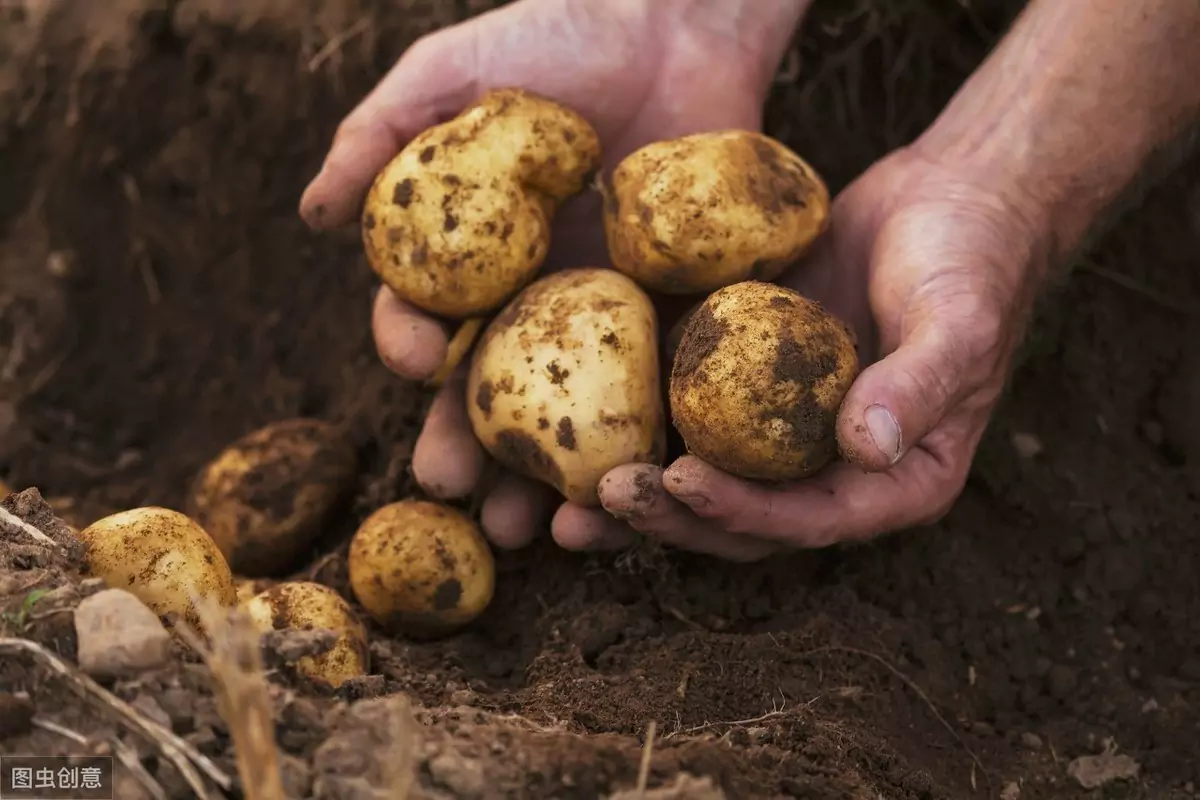
Are potatoes toxic to cats? What causes the onset of potato sprout poisoning in cats?
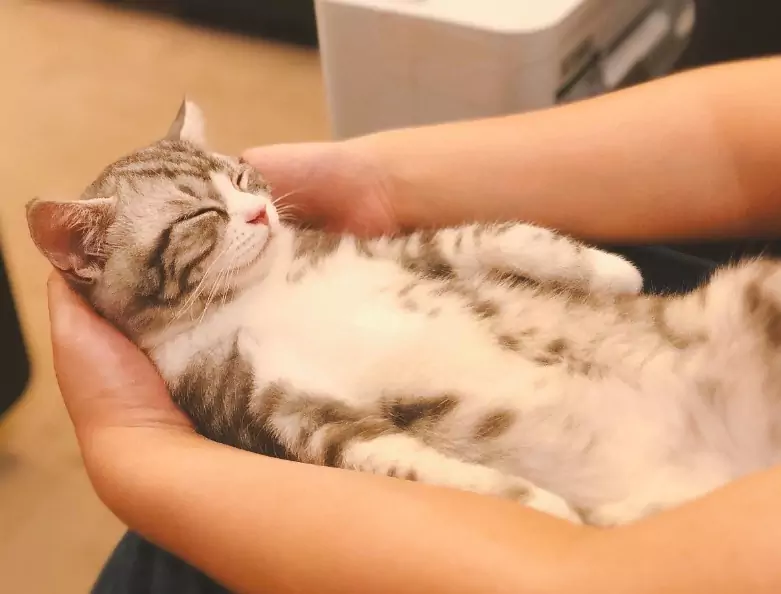
Why does my cat sleep on top of me? Reasons why cats like to sleep next to their owners
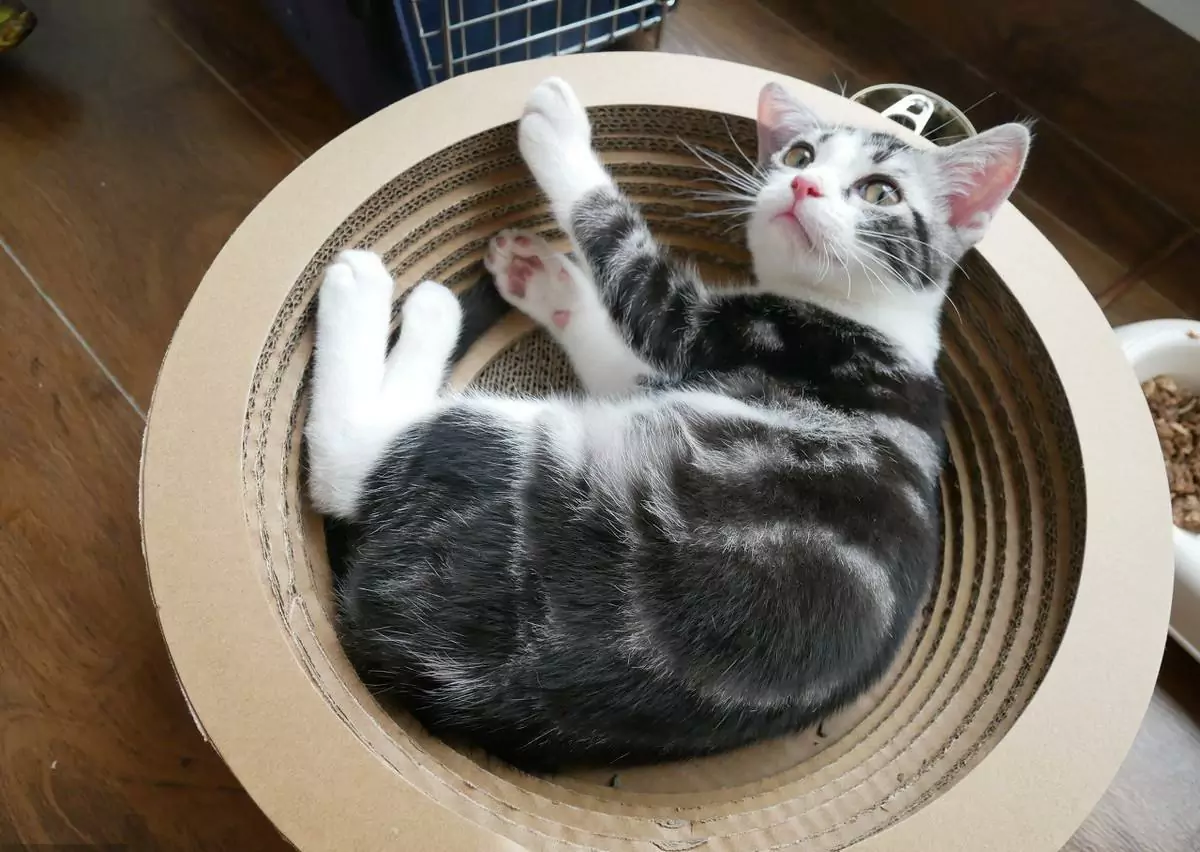
How do make cats like you? How to get cats to like us is quite simple
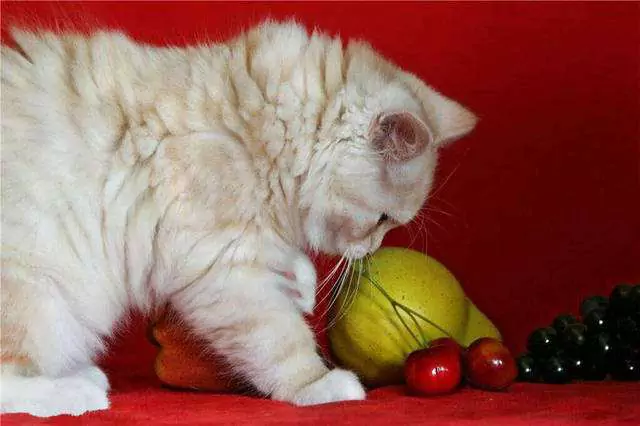
Can cats eat grapes? Why can't cats eat grapes?





